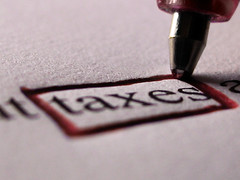“Entitlement is the antithesis of gratitude.” — Donald A. Palmer

When I’m on the exercise bike at the gym, I have three options. I can watch ESPN, in which I have no interest. I can watch the local ABC affiliate, in which I usually have no interest. Or I can watch CNN. I’m not really interested in that either, but it’s the least dull of the three, and it’s better to watch that than to think constantly about how hard I’m cycling.
One of the problems I have with CNN is that it reminds me how far journalistic standards have fallen. When a channel has “news” as its middle name, it ought to be in the business of news, not entertainment. I realize this is a quaint notion nowadays, but if it makes me a dinosaur to think that newscasters shouldn’t make exaggerated facial expressions to tell me what their opinion of an already slanted news story is, then I guess I’m a velociraptor. (Yes, Brooke Baldwin, I’m talking to you.)
Anyway, one of the things I’ve noticed about not just CNN but the rest of the meanstream media is the rhetoric they’re using when it comes to the deal on tax rates that Obama has made with Congressional Republicans. A few points:
- What we’re talking about here is not a tax cut. I realize that because of the machinations of legislation that this is a continuation of a supposedly temporary tax cut from the early part of the Bush administration. But seriously, when tax rates have been the same for eight years now, then if they do go up, whether from legislative action or inaction, then that’s a tax increase, pure and simple.
- Not raising personal income tax on those who make more than a quarter of a million dollars per year is not a “giveaway”, and it’s not “generous”. It’s taxpayers, not the state, who are giving something away; it’s taxpayers who are “generous” here. Anyone using this sort of rhetoric is demonstrating not only that they feel entitled to the wealth of others, but that those others should feel grateful for whatever they’re allowed to keep. Now, if you think that the wealthy, the middle class, or the poor should fork over a significant chunk of their earnings to the state for some sort of purpose, then it’s not like you don’t have a lot of company, but at least be intellectually honest about what you’re saying.
- It seems that a common objection to this failure to raise taxes on the wealthy is that when they keep most of their money they don’t spend it all to boost the economy. I’ve heard repeatedly that tax cuts for middle income and poor people are better because those people will spend it all. Just because someone is well off doesn’t mean their bank account or paycheck should be thought of as a tool for monetary policy. It’s their money, not the state’s.
- All this tax talk has focused solely on the personal income tax. Those who want to raise taxes on the wealthy say that supply side economists are wrong, because the rate at the highest bracket for personal income tax doesn’t really have very much impact on creating jobs and so forth. And that’s probably true. But the corporate income tax rate has enormous impact on that, and so far no one’s talking about that, even though Japan’s recent corporate income tax cut leaves the U.S. with the highest corporate income tax in the developed world. That’s especially stupid in that it would likely be revenue neutral to eliminate it completely, since the revenue would likely be made up by increased collection of personal income tax from those who would be able to get jobs as a result.
So if you happen to drop by my gym and see me frowning on the exercise bike, don’t worry, it’s not that I hate working out. It’s just continued dismay at how far those who treasure freedom have to go in this particular war of ideas.


Additionally:
A) When individuals do not spend their money on consumption, they typically save it in some form that makes it available for others to borrow; they don’t stuff their mattresses with $100 bills. By not spending all of their discretionary money at Tiffany, the Plaza Hotel, and all of the other places where the wealthy shop, they make money available for entrepreneurs to borrow. Reduce lendable funds, and you reduce employment.
B) When individuals spend money, it typically is to business owners, who often are wealthy. For example, if one taxed the wealthy into poverty and redistributed all of the wealth to the poor, the money would be back in the hands of the owners of Wal-Mart by the end of the first week.
C) The populist dream of eating the rich is a fantasy. Wealth can be exported at the push of a button, and the wealthy can emigrate as Jim Rogers has done. Taxing ‘the rich’ works *only* with income, because property and money can be held out of the tax collectors’ reach in trust or through corporations in tax-free jurisdictions. The wealthiest earn most of their income passively. Trying to extricate wealth from the top through income taxation is like fighting a revolution by shooting at dog catchers, postal workers, and DMV clerks.